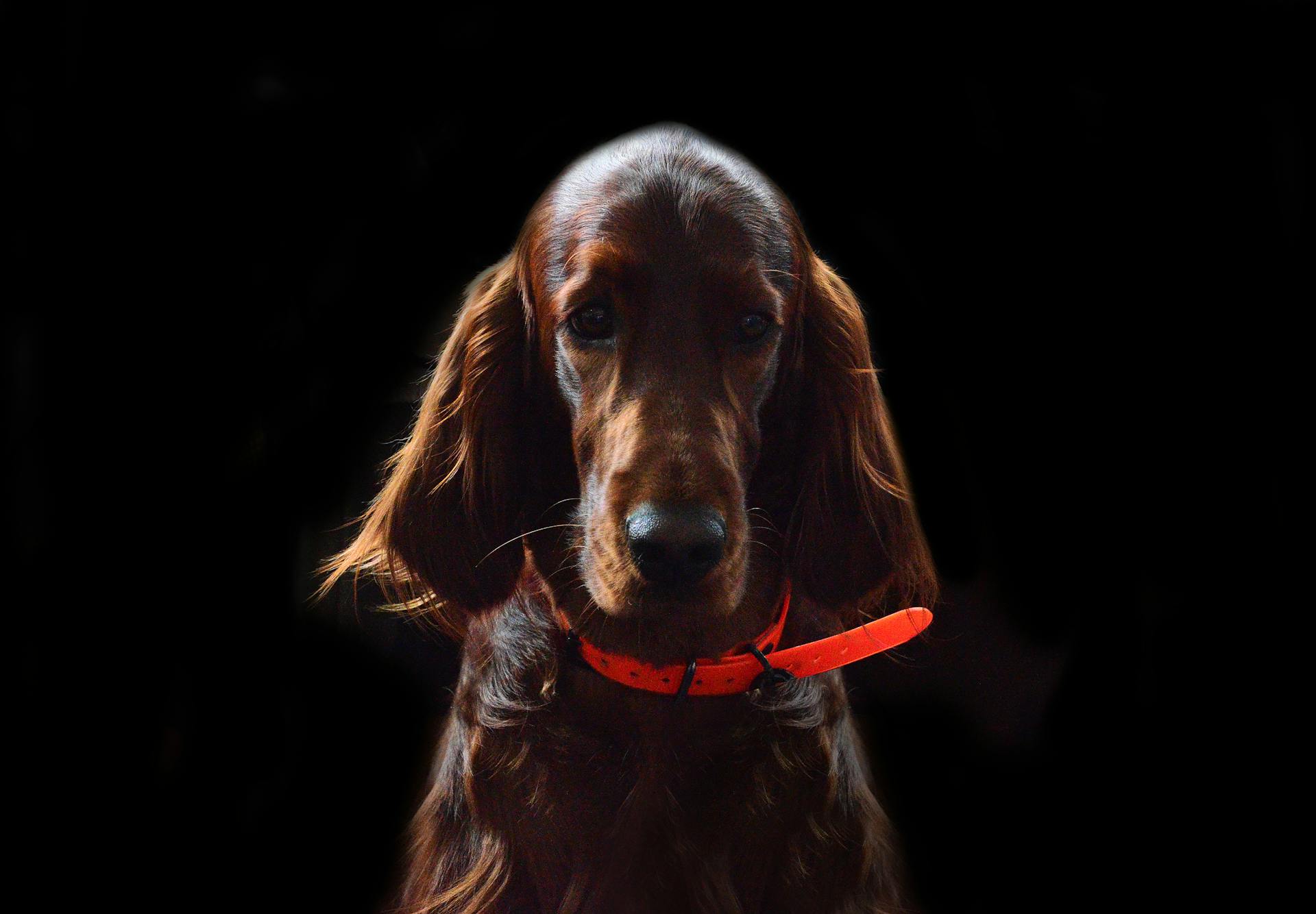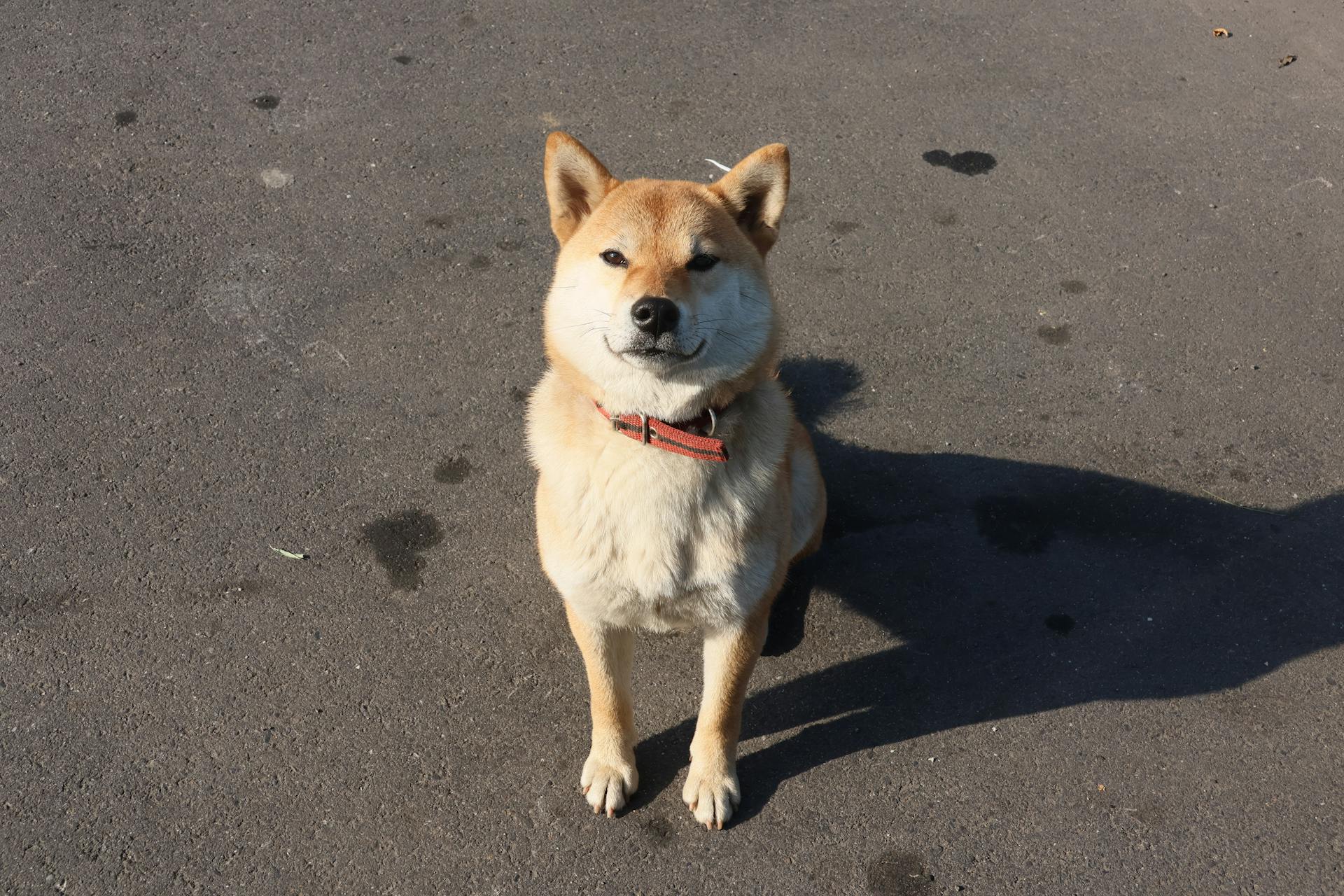
The Polish Kennel Club is responsible for setting and enforcing the rules and regulations for dog breeding in Poland. The club's breeding program is designed to improve the health and well-being of dogs.
To achieve this goal, the Polish Kennel Club has established a strict breeding program that includes a system of breeding licenses. These licenses are issued to breeders who meet the club's strict standards for breeding and animal welfare.
All dog breeders in Poland must register their breeding program with the Polish Kennel Club and obtain a breeding license. This license is valid for a period of one year and must be renewed annually.
The club's breeding program also includes a requirement for breeders to keep detailed records of their breeding activities, including the health and temperament of their dogs.
Explore further: Polish Breeds of Dogs
Breeding Regulations
The Polish Kennel Club, or ZKwP, has strict regulations in place to ensure the health and well-being of puppies.
The breeder registered in ZKwP keeps puppies with their mother until they have completed at least 8 weeks of age.
To be eligible for breeding, a dog must have received at least 3 evaluations with very good or excellent notes from cynological judges.
The mother of a puppy must have received 3 very good notes, while the father must have received 3 excellent notes.
The breeder must also ensure that the puppy is dewormed twice and at least once vaccinated before leaving the breeding.
This information is noted in the dog's health booklet.
Overview of Breeding Rules
In Poland, breeding is overseen by ZKwP / FCI, which ensures that breeding parents meet specific standards.
The mother of a puppy must have received at least three very good evaluations from two cynological judges within 15 months of the puppy's birth.
Judges assess dogs according to the FCI-approved breed pattern, which can be found in the About Breed section.
A puppy is equipped with a metric that includes its parents' names, its name, and the breeder's information, and this metric is a guarantee of the puppy's purebred status.
The metric is issued for puppies that are abnormal from the breed standard, but with a "non-breeding" annotation.
Puppies must stay with their mother until they're at least 8 weeks old, and they leave the breeding twice dewormed and at least once vaccinated.
A pedigree is a document that includes the puppy's ancestry up to the fourth generation and is only issued once in a dog's lifetime.
For another approach, see: Polish Lowland Sheepdog Puppies
Regulations for Purebred Dogs
Regulations for Purebred Dogs are in place to ensure the health and well-being of the dogs themselves. In the US, the American Kennel Club (AKC) is one of the primary registries that sets breed standards and encourages responsible breeding practices.
The AKC requires breeders to register their litters with them, which involves submitting the parents' registration numbers and a fee. This helps to maintain accurate breed records and prevent inbreeding.
Purebred dogs must meet specific breed standards, including size, coat type, and temperament. The AKC has a detailed breed standard for each recognized breed, which breeders must follow to ensure their dogs meet the breed's characteristics.
The US Department of Agriculture (USDA) regulates the sale of purebred dogs, requiring breeders to provide health clearances for their breeding stock. This includes testing for inherited diseases common in the breed.
Breeders must also provide a health guarantee for their puppies, which can include a guarantee against inherited diseases or a refund if the puppy develops a health issue.
Featured Images: pexels.com


